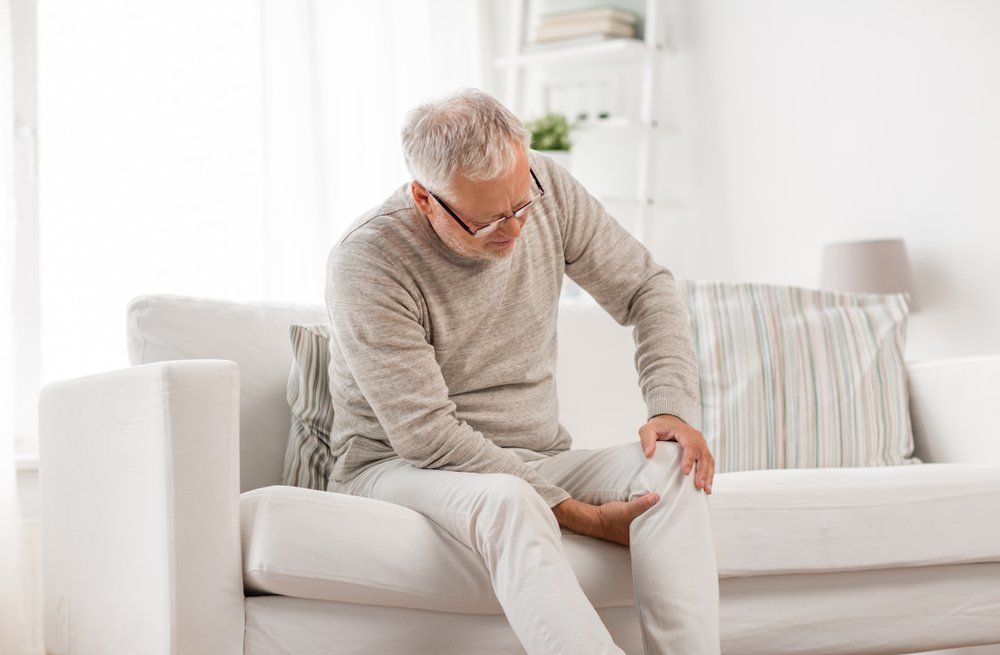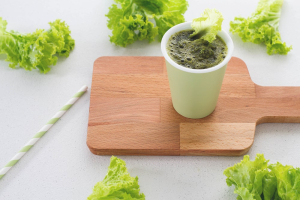Joint Pain in Old Age: What You Need to Know
Want to be the first to hear latest news and find out about our exclusive promotions.
Sign Up for Our Newsletter:

There are many reasons for joint pain. Whether you're young or old, at some point, your joints ache due to the activities you put your body through. However, aching joints usually become a constant problem when you age.
By 45, your bone's cartilage starts deteriorating. One of the reasons for this is osteoarthritis, which many older adults are experiencing. But not all joint pain is caused by arthritis. Learn more about the types of pain and causes below.
Osteoarthritis
Often called wear and tear arthritis, osteoarthritis happens with constant use of your injured joints over time. The cartilage, which acts as a cushion, slowly wears out, creating friction on the ends of bone joints which causes pain.
In the UK, the prevalence of osteoarthritis is higher in women than in men. The number is higher for individuals between 45-49 years old in men and 40-44 in women. The reason for this data is that osteoarthritis in women is higher due to fluctuating hormonal levels, especially during menses, pregnancy, or menopause.
Rheumatoid arthritis
This type of arthritis is an autoimmune disease. That means your immune system attacks the lining of your joints which become swollen, tender, warm, and stiff. Other symptoms of RA are fatigue, loss of appetite, and fever.
About 10,000 people in the UK are diagnosed with RA, with higher prevalence in women, due to genetics and hormonal factors. RA is also called idiopathic arthritis, affecting younger individuals 16 years and below.
Gout
Do you have swollen toe joints or ankles? You might have gout problems. This condition is a complex type of arthritis that suddenly attacks one joint at a time. If you experience stiffness, swelling, and tenderness on your big toe joint or ankles, you possibly have it. Although symptoms come and go, there are ways to manage flare-ups.
Other reasons for joint pains are:
· Tendon and ligament injuries
· Autoimmune diseases
· Frozen shoulder
Pain management
For any type of arthritis, your doctor or pharmacist can prescribe you the best pills for joint pain. These are usually anti-inflammatory prescriptions like acetaminophen, ibuprofen, or naproxen sodium. However, other ways to treat joint pains mainly involve physical therapy, which most clinics offer.
There are many joint pain treatments. The Pearl Chemist Group has licensed pharmacists who can help you choose the right joint pain medicine. They can also recommend health supplements to help you deal with or avoid joint problems in the future.
So don't let joint pain hold you back. From now on, speak to a medical professional so you can live life pain-free.
- Stop Smoking Service (31)
- Baby Care (16)
- Allergy and Hayfaver (15)
- Medicine Online (1)
- Skin Care (40)
- Vitamin And Supplement (71)
- Hair Care (32)
- Fungal Infection (12)
- Sore Throat Treatment (32)
- Flu Relieving Medicine (3)
- Deodorants (5)
- Diarrhoea Treatment (2)
- Muscle Pain Treatment (6)
- Covid-19 Essentials (4)
- Cold and Flu Treatment (23)
- Back Pain Relief Treatment (2)
- Repeat Prescription Service (12)
- joint Pain Treatment (17)
- Sinus Treatment (1)
- Migraine Tratment (11)
- Arthritis Treatment (2)
- Fungal Infection Treatment (23)
- Press Release (1)
- Sexual Health (34)
- Health Checkup (22)
- weight management service (36)
- Flu vaccination (44)
- Emergency contraception (14)
- Travel clinic (61)
- Corona Disease (1)
- Emergency Medicines Service (2)
- Monitored Dosage Systems service (1)
- Medicines User Review service (1)
- Covid 19 Test (12)
- skincare (34)
- Ear microsuction (34)
- Pain Treatment (2)
- stomach pain Treatment (8)
- Stop Smoking Aids (7)
- headache & pain relief (3)
- Eye Care (11)
- Diabetes (11)
- Skincare Product (22)
- Health Care (9)
- Blood Pressure Check (17)
- hajj vaccination (3)
- Perfumes (7)
- Dental Oral Care (6)
- Foot Care (5)
- Ear Care (7)
- Care Home (8)
- Shingles (3)
- Sinusitis (3)
- Infected Insect Bites (3)
- Acute Otitis Media (2)
- Impetigo (2)
- UTI (2)






